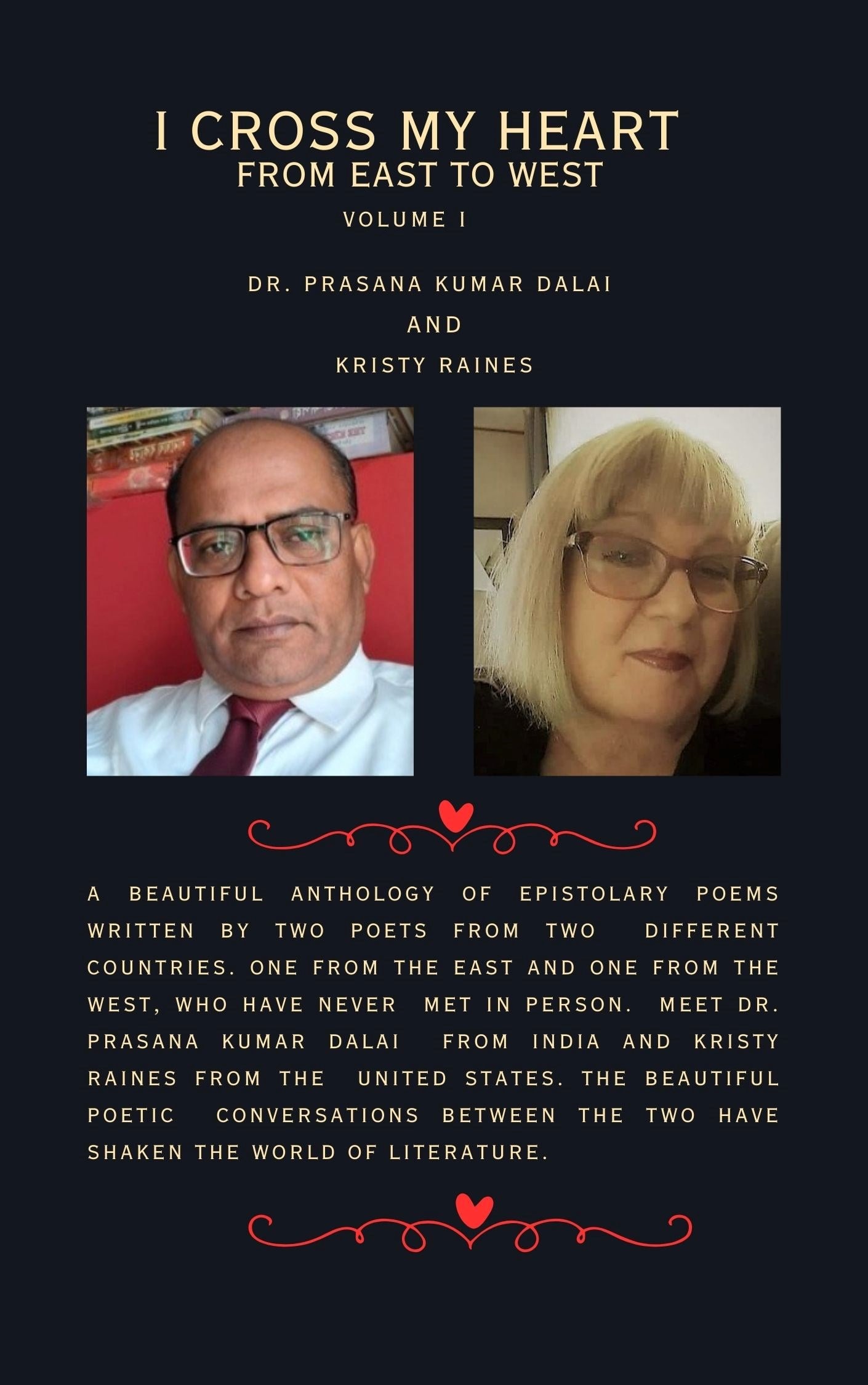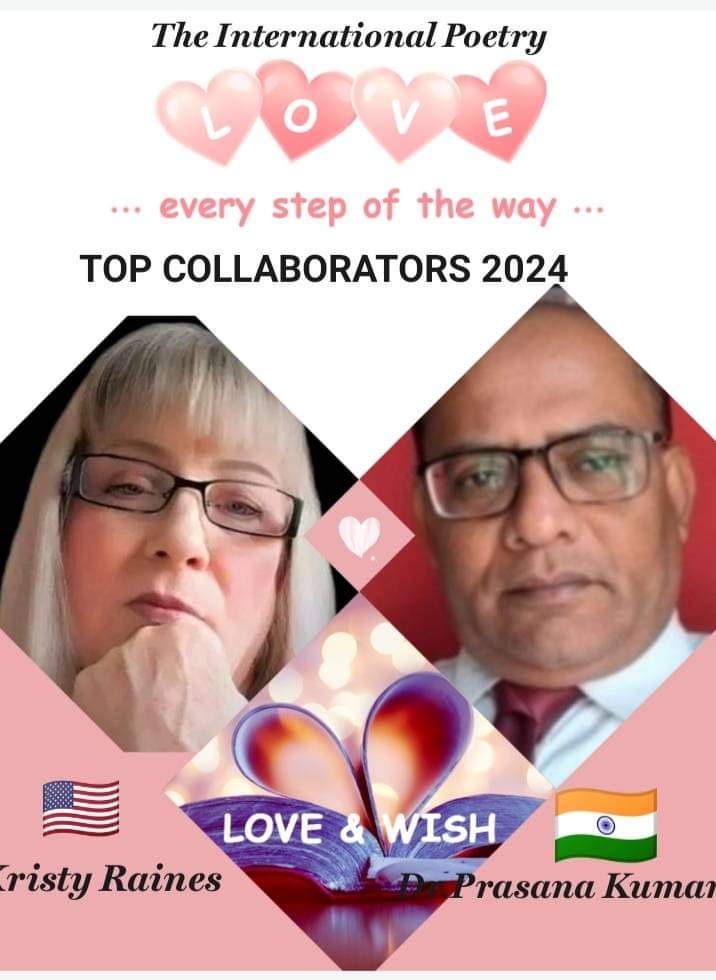
The history of Epilostary poetry in History of English Literature,in different ages,and we have set a goal to write something different genre ,the fun facts about Epilostary poetry in History of English Literature.
On August 18, 2022, Dr. Prasana Kumar Dalai and I wrote our first Epistolary Poem together. His poetry had already had every component in it to use in an Epistolary poem. I wrote a poem that would fit perfectly with his. At the time, it was just an idea. We had no idea that there was already a name for these poems… Epistolary.. Any mistakes in grammar were not corrected, because in life, there are mistakes and we wanted to make them as realistic as possible. We have also never used any AI software to write, which also sets us apart from some, for the sake of literature.
Him being a Romantic Poet and me a Fantasy Writer, for some reason worked perfectly together.
So, we put our first epistolary poem together and it came out like this …
“This is a Unique, Open Verse Collaboration written by DrPrasana Kumar and myself. It is something new and is our own creation, not to be duplicated. © Thank you, DrPrasana Kumar, for taking a chance with me on our newest venture. I am proud of us and how this first one turned out. More to come.”
DAWN TO DUSK!
My Love..
Like a dawn you entered my life
Calm and quiet, all refreshing
And I came adorned in the dust
Of every lane and alley
You came like an Angel
The panacea of my heartache.
I haven’t returned to my life again
But for a wound open today.
Perhaps I have reached
The dusk of my life.
©®Dr. Prasana Kumar Dalai@India
* * * * * * * * *
Dusk To Dawn!
My Love…
If from the dust you have come to me.
I will restore your heart to where it began.
I have watched the knife that caused the wound,
and my love will be the salve that heals it.
For my love did not come from a jealous heart,
but from a place of pureness where only love can come from.
Let me bathe you in my affection,
because in my eyes I see no dusk,
only our dawn together. ©
Kristy (Summer) Raines
The United States of America
8/16/2022
All rights reserved
We continued to write these poems together, which many seemed to like, even to the point that they were even believable. Some people actually thought these poems were written for each other. But that was not the case. What and how we wrote together was very calculated. He already wrote in a beautiful and melancholic way, which was already similar to what very well could have been written in a love letter. I then came up with a poem that would pair well with his poem, and put it in the form of a response to what looked like love letters to each other.
We then looked up different styles of poetry and discovered that our so-called collaborations, were actually epistolary, which are not per say, just collaborations. It is an art in the literary world dating way back in history.
Not long after our first poem, many were also doing collaborations together, but not exactly like ours. We set out to make a name for ourselves for the sake of literature to keep the art of Epistolary poetry alive. As far as we know, we have broken records for writing the most Epistolary poems. We were not just looking for surpassing the record, but the quality of our poetry had to be unique and exquisite. I think that we have accomplished this.
There is a great difference between Collaborations and Epistolary poetry. It took much time and effort on both of our parts to get as far as we have.
Below, we have outlined the difference between collaboration and epistolary poems. The following came from different articles we have read on Collaborative vs. Epistolary poetry.
****
Collaborative or collective poetry is an alternative and creative technique for writing poetry by more than one person. The principal aim of collaborative poetry is to create poems with multiple collaborations from various authors.
VS
Epistolary poems, from the Latin “epistula” for “letter,” are, quite literally, poems that read as letters. As poems of direct address, they can be intimate and colloquial or formal and measured.
****
From “A Poet’s Glossary”
The following additional definition of the term letter poem, epistle is reprinted from A Poet’s Glossary by Edward Hirsch.
Samuel Daniel introduced the epistle into English in his Letter from Octavia to Marcus Antonius (1599) and in Certain Epistles (1601–1603). Ben Jonson employed the Horatian mode in The Forest (1616), which was also taken up by John Dryden in his epistles to Congreve (1694) and to the Duchess of Ormond (1700). Alexander Pope modeled “Eloisa to Abelard” (1717) on Ovid’s Heroides, and adapted the Horatian epistle in his Moral Essays (1731–1735) and An Epistle to Dr. Arbutnot (1735). The epistle fell into disuse in the Romantic era. Since then, it has been occasionally revived and renamed as a letter, as in W. H. Auden and Louis MacNeice’s Letters from Iceland (1937). Richard Hugo brings the form closer to a real letter in 31 Letters and 13 Dreams (1977). Robert Lowell created a controversy in the 1970s by taking actual letters from Elizabeth Hardwick and reshaping them as unrhymed sonnets.
The letter poem is addressed to a specific person and written from a specific place, which locates it in time and space. It imitates the colloquial familiarity of a letter, though sometimes in elaborate forms. Some create fictive speakers, as in Ezra Pound’s adaptation of Li Po, “The River-Merchant’s Wife: A Letter” (1915). Some are addressed to those long dead, as in Auden’s “Letter to Lord Byron” (1937), others to contemporaries. But unlike an actual letter, the letter poem is never addressed to just its recipient; it is always meant to be overheard by a third person, a future reader.
****
Dr. Prasana Kumar Dalai and I will continue to write and perfect our poems, together. The only thing we did not continue to include after the first few poems publicly, was the romantic Salutations that were originally in all of our poems, for the sake of people getting the wrong idea about our relationship, since many thought that we were actually writing to each other.
Kristy Raines





